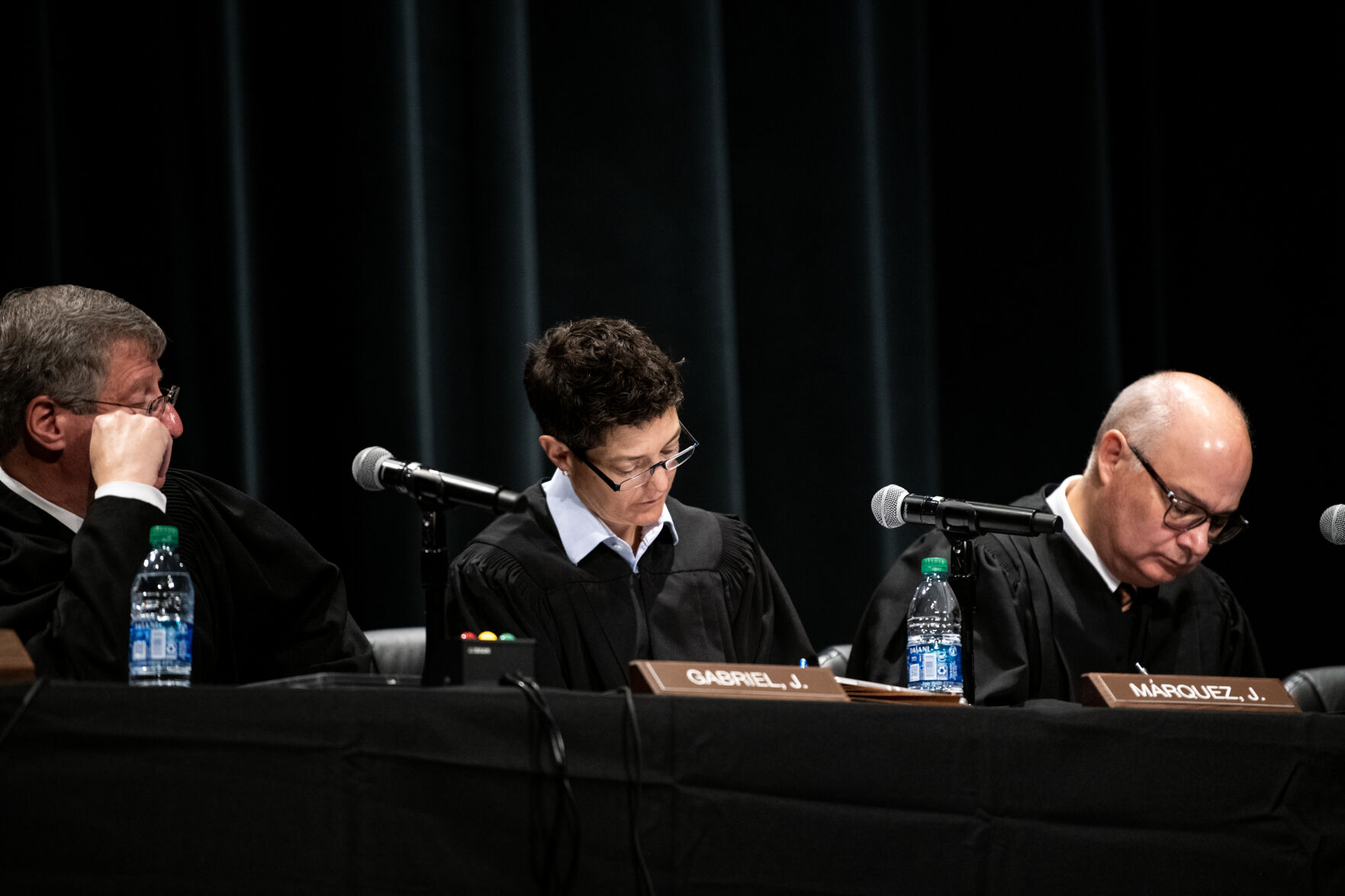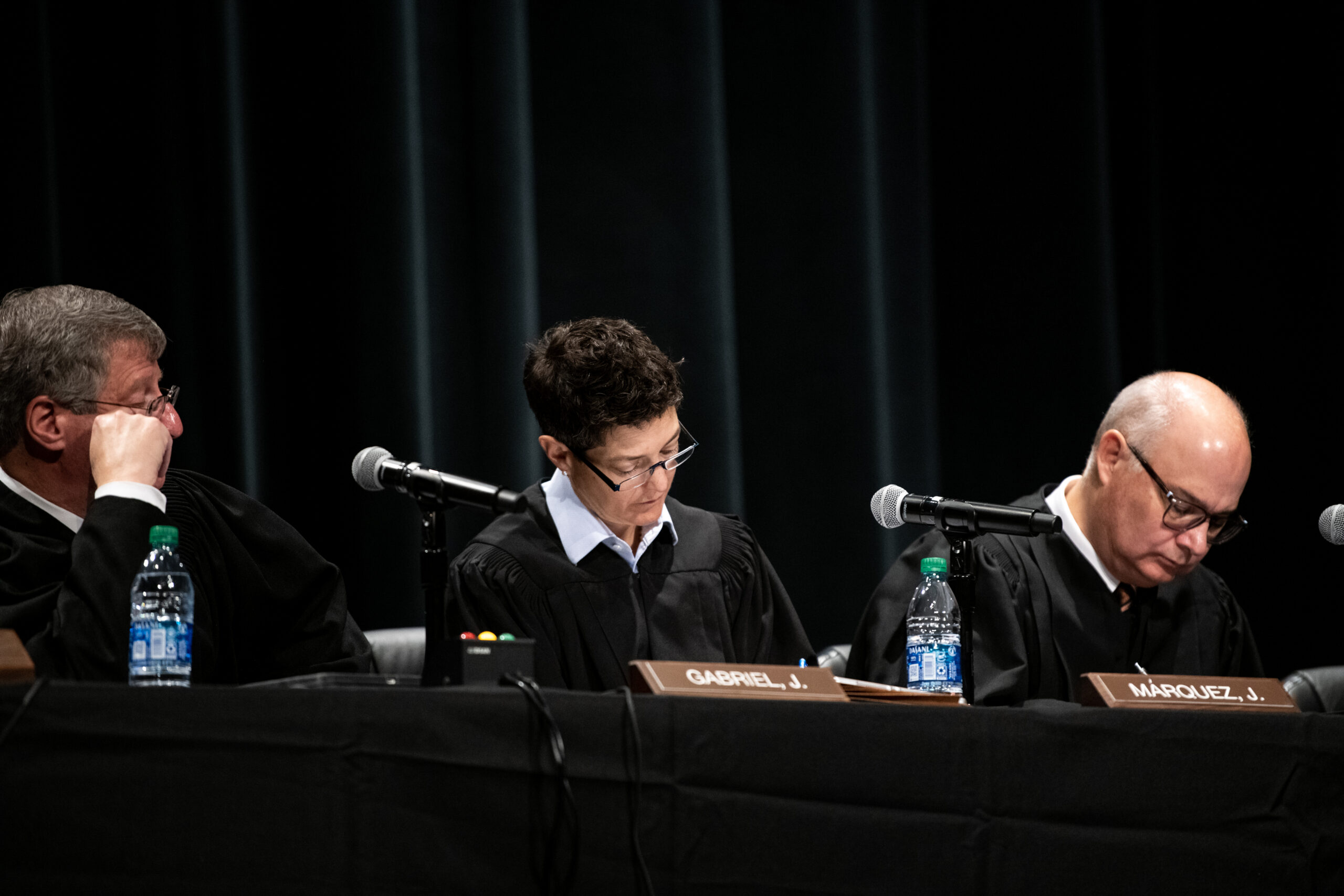Colorado’s justices weigh immunity for municipalities acting as housing developers

Members of the Colorado Supreme Court appeared skeptical this week of the idea that local governments lose their immunity under state law when they act as affordable housing developers.
The Colorado Governmental Immunity Act broadly shields public entities from lawsuits over injuries they cause. Although there are exceptions to the immunity, the purpose of the CGIA is to protect tax dollars and prevent a flood of lawsuits from disrupting government services.
However, the condominium association for Burlingame Ranch II, an affordable housing community that the city of Aspen developed itself, believed it could hold the city responsible for construction defects in a different way. Instead of claiming negligent construction, which the CGIA would block, the association argued the city breached its contract with homebuyers by not addressing the defects.
The state’s Court of Appeals agreed the association’s theory was viable. In response, multiple interest groups throughout Colorado warned the Supreme Court about the consequences of sidestepping governmental immunity and subjecting public entities to legal claims for their affordable housing efforts.
“Municipalities have been able to take on affordable housing work because they have had the liability protections of the CGIA,” wrote attorneys for the Colorado Municipal League, which represents nearly all cities and towns in the state. If Burlingame Ranch II succeeds, “public entities may be hesitant to use all tools available to promote housing.”
On the other hand, if Aspen “is permitted to enter into contracts as a real estate developer and later be absolved from its obligations,” wrote a group representing homeowner associations and property managers, “no rational market participant or owner would be incentivized to enter into a future contract with any government entity.”
At oral arguments on Tuesday, the justices wondered whether it is possible for governments to give up their immunity simply by signing a contract.
“They can decide to undertake a duty on themselves, contractually. Couldn’t they?” asked Justice Richard L. Gabriel. “Why should that be barred by the governmental immunity act?”
In August 2017, after Aspen had developed the Burlingame Ranch II community, it transferred control to the owners through the condo association. Before the transfer, the city worked to address multiple defects to wooden building components.
Claiming it had suffered damages, the association sought to force the city into arbitration for allegedly breaching its contract. The association pointed to various instances of homeowners being instructed to contact the city, as the “responsible” party, for any defects.
Aspen then sought a declaration from the courts that the CGIA rendered it immune. Without holding a hearing to decide if a contract existed, Pitkin County District Court Judge Denise Lynch agreed the association had actually brought a prohibited liability claim masquerading as a breach-of-contract dispute.
“Here, the nature of the injury are the construction defects,” she wrote in 2020. “Accordingly, regardless of how the Association characterizes its claims, the nature of the underlying injury is the construction defects … and therefore is barred by the CGIA.”
However, the Court of Appeals disagreed. Under a judicially created rule, contractual obligations take precedence over other liability claims. The court believed Lynch should hold a hearing about Burlingame Ranch II’s alleged contract with the city. If the allegations were correct, governmental immunity would not apply.
On appeal to the Supreme Court, Burlingame Ranch II cautioned that by making local governments immune when they develop affordable housing riddled with construction defects, the costs will shift onto the less-wealthy owners.
“A purchaser of an affordable housing unit could find themselves with enormous costs that they cannot pay,” wrote the association’s attorneys.
Several members of the court were skeptical that a contract between the association and Aspen even existed, and were open to returning the case to Lynch to hold a hearing, as the Court of Appeals ordered.
On the legal question of whether a breach-of-contract claim can sidestep governmental immunity, Christopher Griffiths, the attorney for Burlingame Ranch II, offered a hypothetical example of a “rogue school bus.”
“I live in a neighborhood and there’s a school bus. It’s a government school bus and it’s driving around the neighborhood. And it’s driving erratically. And I know that that school bus, one day, is going to hit me,” he said. “So, I go to the school district and I sign a contract with them. I say, ‘School district, let’s agree right now that if your school bus hits me, it’s gonna be $50,000.'”
Griffiths then supposed that when the school bus hit him, the school district would argue Griffiths actually had a liability claim and the district was immune under state law, regardless of the contract. Griffiths did not believe the Supreme Court should endorse that about-face.
“So, you’re saying parties, including a government and an individual, could contract their way around the CGIA? And a local government – or the school district in your hypothetical – could negotiate away their immunity?” asked Justice Monica M. Márquez.
“They’re circumventing it, right?” added Justice Carlos A. Samour Jr.
“That’s the government’s choice,” responded Griffiths.
The case is City of Aspen v. Burlingame Ranch II Condominium Owners Association, Inc.














